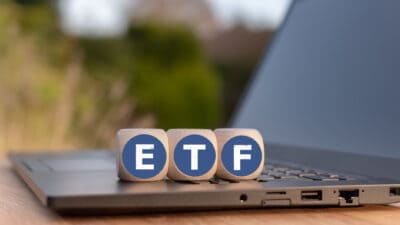It's been a hard year for valuations of technology businesses. That's the case in Australia, the US, and Asia as well. So, after a hefty fall, is the Betashares Asia Technology Tigers ETF (ASX: ASIA) now an opportunity?
Let's have a look at the situation. In 2022 to date, the price of Betashares Asia Technology Tigers ETF units has fallen by 27%. Ouch.
It's down 36% over the past 12 months.
Remember, an ETF's return is dictated by the performance of the underlying holdings. While the overall ETF portfolio may be down 27% this year, there could be others in the portfolio that have dropped more than 27% and others may have fallen less.
There has been much pain within the ETF this year. Inflation and rising interest rates certainly aren't helping.
After the heavy declines, is the Betashares Asia Technology Tigers ETF great value?
Should investors look at the Asian tech ETF?
It's certainly worth thinking about.
When compelling businesses fall in value significantly, there could an opportunity there.
Looking at the portfolio, the ETF gives access to around 50 of Asia's biggest technology businesses outside of Japan.
We're talking about names like Tencent, Alibaba, Taiwan Semiconductor Manufacturing, Samsung Electronics, Meituan, Pinduoduo, Infosys, JD.com, and Netease.
There's an investment case (and risks) for each company in the portfolio. But, collectively, I think the group has a promising future with the ongoing digitalisation of Asia, the revenue growth these businesses have been demonstrating over time, and their operating leverage.
However, there are also some headwinds to keep in mind. More than half of the portfolio is invested in businesses focused on mainland China. The country keeps locking down cities and pursuing a COVID-zero strategy – how long will this go on and how much will it hurt growth?
There's also the unpredictability of operating under the Chinese government.
Is Betashares Asia Technology Tigers ETF good value?
It's certainly a lot cheaper than it was at the start of the year.
According to BetaShares, the forward price/earnings (p/e) ratio was 15.4 at 31 July 2022. In other words, the ETF was priced at 15.4 times the underlying companies' earnings for the upcoming year.
It's certainly a lot cheaper compared to western technology businesses. Let's look at BetaShares NASDAQ 100 ETF (ASX: NDQ) – it has a forward p/e ratio of 22.8.
A lower p/e ratio doesn't mean that it's a better choice than the NASDAQ ETF, however. For some investors, the lower valuation may more than make up for the risks of investing in Asian shares. Other investors may prefer a different ETF because of the uncertainty.









